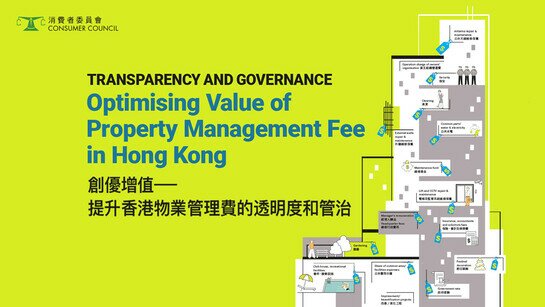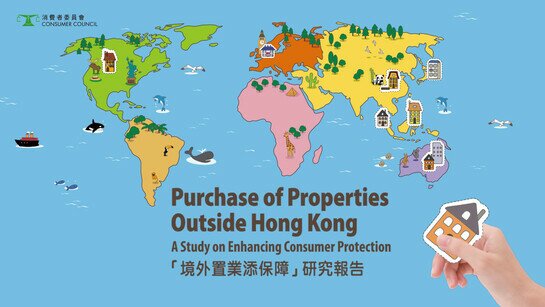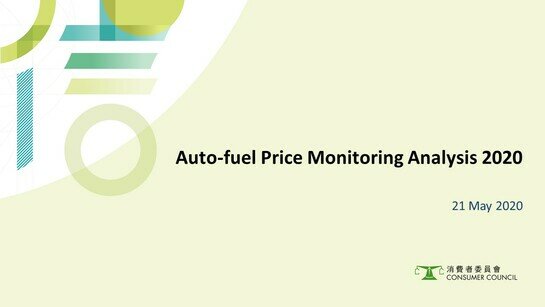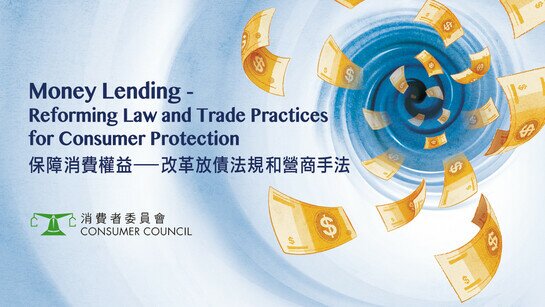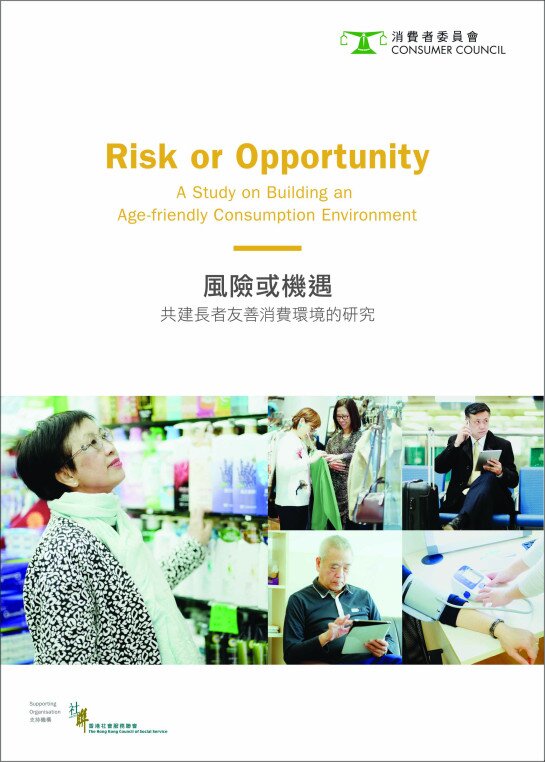- This paper presents the Consumer Council views in response to the report entitled "Hong Kong Banking into the New Millennium - Hong Kong Banking Sector Consultancy Study" ("Consultancy Report"). The Consultancy Report was produced by the KPMG and Barents Group LLC, after a study of the Hong Kong banking sector commissioned by the Hong Kong Monetary Authority (HKMA). The aim of the study is to assist the HKMA in developing an appropriate strategy to supervise and regulate the sector in the coming five years.
- The Consultancy Report contains details of the backgrounds to each of the current regulatory features and the HKMA's supervisory regime, the arguments for change, in addition to implications for the sector if the changes are to be made.
THE CONSUMER COUNCIL'S RESPONSE
- The Consumer Council would like to compliment the HKMA on the thoroughness of the Consultancy Report. As an advocate for both promoting competition in the marketplace, and ensuring that there are adequate consumer safeguards, the Council has limited its response to those recommendations that directly address consumer protection and competitiveness in the banking sector.
- The banking supervisory framework proposed in the Consultancy Report, is principally to enhance HKMA's role in the areas of organisational structure, supervisory tools and techniques, supervisory policies and guidelines, human resources and the quality and volume of information. While the HKMA's transition to risk-based supervision is welcome, the Council's major concern is on increasing the level of transparency of the supervision process, making its supervisory regime accessible to the banks and consumers.
- With regard to banking regulation, the consultants have suggested a series of recommendations with the objectives of removing barriers to free and open competition and strengthening the safety and soundness of the banking sector. The recommendations are structured around the following subjects.
- The three-tier system;
- The one-building condition;
- Market entry criteria;
- Financial disclosure;
- Depositor protection;
- Lender of last resort;
- Interest Rate Rules.
- In addition to addressing the above areas in this paper, the Council has also provided comments on four more related subjects for the HKMA's consideration. These are:
- Towards the era of electronic banking;
- Blurring of financial markets;
- Possible future acquisitions; and
- General competition oversight and consumer protection.
The Three-Tier System (section 1.2 of the report)
- In view of the blurring of financial markets, the Council concurs with a need for consolidation of the tiered system. However, a valid argument could be put for a two tiered system by retaining a distinction between banks and restricted license banks (RLBs). For example, to allow new participants who may not fully meet the criteria to qualify as a bank to enter the market, albeit at a restricted level. In these circumstances, having a separate category with different level of prudential control in terms of capital adequacy requirements and exposure limits, could be appropriate. However, any diminution of safeguards that arose from the distinction, should be made apparent to consumers.
- With regard to redefinition of 'small deposits' as one of the distinctions to be maintained in a two tiered system, the consultants proposed two options, as follows:
- Option 1 - an amount based on a study of the current deposit market (i.e. the distribution of account balances) which could be adjusted for inflation on a periodic basis; or
- Option 2 - a fixed amount of HK$500,000 (i.e. the current distinction between the deposits that banks and RLBs can accept).
- Option 1 - an amount based on a study of the current deposit market (i.e. the distribution of account balances) which could be adjusted for inflation on a periodic basis; or
- The Council gathers from the consultants' comments, that Option 1 would necessitate periodic revision of the level of access, reflecting possible downward changes in values of the deposit market. Option 2, would maintain the existing high threshold of access by RLBs to retail deposits. A high threshold would therefore preclude RLBs, whose clients are not covered by the priority payment scheme, from accessing small deposits. The Council would therefore be more in favor of Option 2, as it is likely to enhance specialist segmentation of the market so that RLBs, such as finance companies, can cater for targeted groups of high net-worth clients. Those high net-worth clients are more knowledgeable and able to exercise discretion on their own funds management.
- A question arises as to how the HKMA will attend to the existing Deposit-Taking Companies (DTCs) licence holders, especially the 11 independent DTCs and the 35 DTCs owned by foreign banks not in Hong Kong. If they do not opt for an upgrade of licence, simply revoking their DTC licences will render them becoming unregulated finance companies. This raises a concern, as there may not be sufficient safeguards to protect consumers against services provided by financial intermediaries other than authorised institutions. Accordingly, the HKMA may need to consider the degree of risk, and what residual safeguards should be put in place, in relation to the elimination of the DTC category.
- The consultants also addressed the issue of RLBs and DTCs not being permitted access to the Real Time Gross Settlement (RTGS) interbank payment system. At present, only banks are allowed access the system. In view of the emerging nature of financial markets, authorised institutions are increasingly involved in securities transactions, giving rise to a significant amount of interbank settlement. Restricting RLB and DTC access may place them at a competitive disadvantage.
- In principle, the Council supports the consultants' recommendation that the access issue be reviewed in conjunction with a change towards a two-tier structure, and that a more appropriate means of defining access criteria is to be considered. However, the Council would like the HKMA to monitor the potential impact of extending RTGS access to institutions other than banks as this would provide them with added liquidity which could have both positive and negative effects to the market.
- The Council appreciates the overall improvement in services at the bank-customer level, brought about through increased efficiency in local currency transactions and minimisation in settlement risks brought about by the implementation of RTGS. Nevertheless, the Council understands that it still takes days and sometimes weeks for individual banks to settle foreign currency dealings with their correspondent bank network in other countries. The RTGS module allows for future developments of domestic and international linkages to facilitate real time delivery versus payment and real time payment versus payment. The HKMA is encouraged to take the initiative and discuss the establishment of these linkages with other financial centres.
The One-Building Condition (section 1.3 of the report)
- As noted in paragraph 1.3.3 of the Consultancy Report, only 12 institutions (20% of respondent institutions subject to the condition) indicated they would increase their branch network if the prohibition were to be relaxed. This seems to suggest that the majority of foreign banks have achieved a desirable level of competition without having to invest in more than one branch. It therefore appears that there is little threat of instability that competition through the development of branch networks is supposed to induce.
- It follows therefore, that there is no reason for the branch restriction to remain, or for there to be a cap on the number of branches. Removal of the restriction would provide a level playing field for all market participants and it would allow banks to have flexibility in determining their level of investment in a branch network, versus other product delivery channels. The branch restriction imposed on an open retail market is therefore contrary to the principle of free competition. Moreover, in view of the changes taking place in the market, with the growth in off site electronic banking services, and that the growth is not impaired by the branch restriction, it would seem unconvincing to restrict market participants from competing on equal footing in relation to physical branch locations, on the grounds of maintaining banking stability.
- Nevertheless, the Council notes that other jurisdictions have a range of restrictions on the scope of operations for foreign banks and it may be necessary for trade policy reasons to consider the need to maintain some restrictions in parity with other jurisdictions. In these circumstances a phasing-in approach on the relaxation of the branch restriction may be appropriate.
Market Entry Criteria (section 1.4 of the report)
- In assessing the consultants' recommendations on possible changes to market entry criteria, the Council has examined the rationale behind the criteria, in addition to the potential implications, from the perspectives of consumer safeguards and fair competition.
- Asset size criteria - The Council agrees that the asset size criteria, though not a proxy to measuring the bank's safety and soundness, will ensure only substantial and reputable banks access to the small deposit market that in turn may serve as a means to better protect depositors.
- Capital requirements for locally incorporated banks - The Council relies on the HKMA's discretion regarding the need to review capital requirements for locally incorporated banks, RLBs and DTCs. The Council also notes that foreign branches are not required to maintain endowed capital in Hong Kong. While they are supported by the whole capital of the parent bank, their capital adequacy requirements are the responsibility of the home supervisor. The Council acknowledges the policy adopted by the HKMA in admitting only those banks from countries where the home supervisor has established, or is actively working to establish, the capabilities to meet the Basle Minimum Standards.
- Foreign branch capital - The Council agrees that there is no need for any change to the current situation where foreign capital or an equivalent is not required.
- Time period and association with Hong Kong - The Council shares the view of the consultants that the criteria appear overly burdensome and unnecessarily restrictive in determining the qualifications of new market entrants. It therefore supports the recommendations to reduce the time period of local presence, and to relax the 'closely associated rule' in order for potential applicants to incorporate more easily with a full banking license. Notwithstanding the consultants' recommendations, the Council notes that the Government has pledged to remove the criteria on predominantly Hong Kong interests as eligibility for a new full banking licence in its new financial services commitments under the General Agreement on Trade in Services with the World Trade Organisation.
- Ownership - The Council concurs with the consultants' recommendation that the ownership criterion will ensure only fit and proper persons enter the market and take deposits from consumers.
Financial Disclosure (section 1.5 of the report)
- While recognizing the emerging need for higher standards of institution-level disclosure to improve operation of the market discipline mechanism and to reduce the likelihood of rumour-driven runs, the Council looks at the disclosure of information also from a level playing field aspect. The Council is therefore in support of the HKMA's move to closing the transparency gap that presently exists between local and foreign banks.
- To enhance effective monitoring of risk taking activities, the Council would like the HKMA to require banks to provide a detailed breakdown of doubtful or non-performing loans rather than merely state them as gross figures under the loan classification system. Crucial data disclosed on loans breakdown - such as by types of collateral - will better reveal the concentration of risk.
- Under the disclosure heading, another issue that merits special attention is off-balance sheet items, a subject of increasing importance as more banks get into 'exotic' derivative instruments. The Council would like the HKMA to broaden its regulatory perspective and examine how disclosure could be strengthened to match the development of derivatives by banks.
- While more disclosure by foreign branch banks operating in Hong Kong is generally welcome, the Council would like to emphasize the need for ensuring that any local branch financial information be placed within the overall context of the financial strength of the whole institution. This is to avoid local disclosure being misinterpreted by the market.
- Finally, the Council would like the HKMA to make constructive recommendations as to how it can take an active role in promoting understanding among the general public of disclosed financial information.
Depositor Protection (section 1.6 of the report)
- The Council welcomes the proposed study into establishing a depositor protection scheme. It is to be hoped that the results of this study will advance the limited protection currently available to Hong Kong consumers, and bring Hong Kong into line with world's best practice. The Council is not predisposed towards any particular form of depositor protection scheme, but would hope that the selected scheme would be implemented with care to ensure proper monitoring and supervision. The HKMA is especially alerted to look into the potential problems of moral hazard and cross subsidisation in a depositor insurance scheme, and the fact that the costs of any scheme will be ultimately borne by consumers. The Council therefore urges the HKMA to provide a detailed analysis on the cost implications of any proposed depositor insurance scheme in its feasibility study. With regard to the practical issues involved with depositor protection schemes, the Council provides the following comments.
- Under existing liquidation arrangements, the provisional liquidator of a local bank branch may in practice only apply Hong Kong assets to settle priority claims. There is no requirement for foreign banks to maintain sufficient assets in Hong Kong to meet priority claims. The Council therefore supports the idea of improving the effectiveness of the priority payment scheme by requiring foreign branch banks to maintain sufficient assets to meet priority claims. By doing so, it would provide better protection for consumers who deposit their money in foreign branch banks; even though it does imply a carrying or opportunity cost for banks.
- The suggestion on proposing to enhance the existing priority payment scheme, by introducing a mechanism whereby depositors would be able to get immediate pay-out for part of their deposits (up to a set amount), rather than having to wait for the full process of liquidation, deserves merit. Such an arrangement, by improving the immediacy of payment may hopefully alleviate the propensity of depositors to cause a run on their banks in case of rumors.
- There are particular forms of depositor protection schemes (apart from deposit insurance) which the Council would like the HKMA to study further, including loss-sharing conventions in lieu of deposit insurance. As noted in the Consultancy Report, this approach does not require the build up of an insurance fund, thereby reducing the up-front direct costs of the scheme and providing an incentive for potential contributors to monitor vulnerable institutions. In considering this approach, attention will be required on issues such as who will be included as potential contributors in the loss-sharing scheme, how to determine the level of contributions without raising the moral hazard issue, and how to deal with large disbursements when necessary.
- The calculation of premiums, in depositor insurance schemes, based on relative risk will reduce moral hazard and avoid implicit cross-subsidies among banks. However, in addition to the difficulties arising from assessing and indicating the level of risk premiums, there have been concerns raised that such sensitive information, substantiated or otherwise, may put the integrity of the banking sector at stake. Nevertheless, the Council believes as a matter of principle, that this sensitivity concern is similar to that of credit rating and that in the same way that consumers have access to that information, they should also have access to information on risk premiums in order to make informed choice.
Lender of Last Resort (section 1.7 of the report)
- The lender of last resort is an important safety net measure. The Council finds it unacceptable that the role of the lender of last resort is misunderstood, especially among market participants. There have been cases where it is usually the government's decision rather than that of the HKMA in arranging rescue operations to help failed institutions. The Council therefore supports the consultants' recommendation that the HKMA should take steps to reassess and clarify its role. Particular attention is drawn to the discretionary power available to the HKMA in providing assistance.
- The HKMA must therefore improve transparency in its exercise of discretionary power. The principal uncertainty in the discretionary approach, as opposed to a rules-based approach, is that the grounds upon which advances for liquidity assistance and advances for solvency or capital support might be made, may become blurred. Public awareness should be created to the fact that there is no assurance that an insolvent bank will necessarily be rescued.
Interest Rate Rules (section 1.8 of the report)
Deregulation of IRR
- The Council queries whether there is in fact a justifiable concern that deregulation of current and savings accounts would have serious consequences to banking stability. There are a number of reasons for taking this view.
- The Council queries whether a massive migration of deposits between institutions would actually take place, if interest rates were deregulated. It is not certain that depositors will readily switch between banks in search of higher interest rates to place savings deposits, which in practice, because of off site electronic banking services, are more or less a substitute for ready cash. Mobility of customers would most likely be dependent on other variables, more concerned with functionality in operating the saving accounts and the fees that apply.
- Whilst the aggregate of savings deposits may be large, the average balance per depositor is likely to be small. Further, short-term time deposits up to 6-days are the smallest balance of any of the IRR regulated deposits (0.3% of total IRR deposits as shown in Table 1.8.2 of the Consultancy Report). In terms of liquidity, call deposits approximate savings deposits.
- Taking into consideration the invisible costs of servicing savings and current accounts, banks may not achieve high net yields with these deposits. It follows that banks will not compete aggressively to attract the deposits currently covered by IRRs, if they are fully deregulated.
- It is noted that at paragraph 1.8.7 of the report few institutions viewed deregulation of the remaining interest rate rules as an opportunity, and only 17% considered that they would be able to attract new deposits in such an environment. Also, with the advent of electronic banking, depositors can easily operate a sweep arrangement (albeit not automatically) to transfer funds to current accounts to match cheque payments. The average balance on current accounts tends to be small, and represents only funds-in-transit.
- On the issue of interest rate volatility, Hong Kong did experience particularly high and volatile interest rates in the face of several rounds of speculative attacks, and the HKMA implemented "seven technical measures" on 5 September 1998. By allowing banks to repeatedly use Exchange Fund papers as collateral to obtain overnight liquidity at the Discount Window (formerly the Liquidity Adjustment Facility), the banking system's liquidity is enhanced, making speculation on the Hong Kong dollar more difficult and giving rise to a more stable interest rate environment.
- Interest rate volatility has subsided since the HKMA's implementation of "seven technical measures". HKMA's concern over increased interest expense and decline in profitability (therefore increasing potential systemic risk) upon full deregulation of the IRRs, might therefore be overstated. In the report, the consultants acknowledged they have not taken into consideration how banks might pass on the higher cost of funds to preserve net interest margins, nor ascertained other income generating strategies that banks might deploy to compensate for some of the increase in interest expense.
- For reasons of prudential concern about the likely impact of the remaining deregulation on sector stability, and individual bank's ability to compete, the consultants recommended a phased deregulation. However, the Council notes that some major banks have recently pledged their support to immediate full deregulation of the IRR. Given the analysis above, indicating relatively minor interest rate volatility, the Council supports full deregulation.
- The consultants also recommended that interest should be paid on current accounts up to an "agreed" interest rate cap. The Council is of the view that there is no compelling reason to place an interest rate cap on current accounts, when they are freed from interest rate restrictions. The interest level should be left to arbitrage in the marketplace.
Containment of Risk
- There is a general recommendation on page 69 of the report that further deregulation should only be introduced after a specified period of stability characterized by relative containment of risk, and that given the difficult operating conditions expected during 1999, no deregulation is recommended next year (2000).
- The consultants recommended that a number of financial and market indicators should be taken into account in assessing that risk. Among the indicators is the phrase "other measures of importance to the Hong Kong economy". It is not clear what measures are being referred to. It is also not clear whether any weighting will be given to one or other of the specific indicators as exerting a major influence in determining further deregulation.
- While it may be acceptable to have some general indicators to cover any eventuality, the Council would stress that the triggers for deregulation should not be tied to individual banks' performance but should take an overall market perspective. This is to avoid the distortion that would occur in using the performance of less efficient banks, within any benchmark indicator, where profitability is supported by the existence of a competitive restriction such as the interest rate rules. Competition itself is characterized by an element of instability as far as individual firms are concerned. It would be odd to use as the reason for maintaining one particular competitive restriction, the fact that its removal would impede the inevitable consequences of competition in the market.
- As a general recommendation, the indicators should be clearly defined and the assessment results made known to the public. This will provide an element of transparency and certainty to the process.
Towards the Era of Electronic Banking
- The importance of electronic banking and its far-reaching implications on the strategic direction of banks cannot be overstated. Banks are moving away from bricks and mortar to remote distribution such as the Internet and phone banking. The HKMA's establishment of a Study Group on Electronic Banking to address important issues such as Internet security is therefore welcomed. The challenge is to ensure that the regulatory and supervisory framework keeps up with the technological developments without stifling innovation.
- Public confidence in the entire system must be soundly based. There can be zero tolerance for intrusion, fraud or failure. The HKMA should adopt prudent measures to assure the integrity, authentication and non-repudiation of Internet messages and transactions, and also the protection of consumer privacy. While the banking system is proprietary, the Internet is open. Due care and diligence must therefore be exercised to implement appropriate security measures in such an open system. It should also be noted that technology is only part of the security solution. Security breaches can come from within internal sources. The HKMA is encouraged to work closely with the Government to strengthen the legal framework to provide favourable conditions for the development of electronic banking.
Blurring of Financial Markets
- Global financial markets, encompassing Hong Kong, are blurring traditional banking boundaries. Financial institutions are expanding beyond their geographic and traditional product boundaries to seek and exploit new market opportunities, to meet intensified competition from non-bank financial institutions and to meet customer demand for new products and services. Consolidation with other financial service providers is also increasing and there is an emergence of new information systems and technologies. In view of these changes, the Council sees an urgent need for the HKMA and other financial sector supervisors / regulators to increase supervisory cooperation and harmonisation of policies and procedures across different functional areas and to strengthen communication among themselves (banking, securities, and insurance).
Possible Future Acquisitions
- As a result of increased competition in the sector, there may be a consolidation of the number of institutions with some acquisitions or mergers taking place. The current HKMA Guideline No. 1.3 "Mergers, takeovers or restructurings of authorised institutions" does not have a test that provides for the HKMA to assess the anti-competitive risks in acquisitions and mergers. For example, as found in other jurisdictions that have general competition law, that mergers or acquisitions should not be approved if they have the effect or likely effect of substantially lessening competition, or that they could lead to a position of dominance.
- The Council considers this issue would be best resolved by introducing a general competition law in Hong Kong. However, in the absence of a competition law, the Council recommends that the HKMA Guideline should have provision enabling the HKMA to assess any takeovers or restructuring on the basis of a clearly defined competition test.
General Competition Oversight and Consumer Protection
- While the Consultancy Report makes a number of recommendations enhancing competition, it does not address the issue of regulatory measures on competition, either through the implementation of general competition law, sector-specific rules or through a self-regulatory mechanism. Neither is there any discussion concerning the issue of consumer protection, in relation to unfair trading practices in the sector. The Council therefore recommends that (in the absence of general legislative provisions - which are the Council's first preference) at the very least some self-regulatory mechanisms should be used to enhance competitiveness and consumer safeguards in the banking sector.
- The Council has produced a Benchmark Code that outlines general principles, in addition to practical examples of code rules that can form the basis for industry associations to construct or amend an existing code of practice. The Council is pleased to note that the 'Code of Banking Practice' for Banks' and DTCs' does reflect some of the principles and provisions in relation to consumer protection. Nevertheless, in assessing the impact of full deregulation, it is likely that banks will pass on or mitigate their costs in the form of reductions in branch networks, higher account servicing fees, introducing new service fees, and/or higher lending rates to customers. The Council therefore urges the HKMA to monitor such practices and consider whether additional consumer safeguards should be introduced in the code. For example, the code may need to be amended to introduce new standards to ensure that consumers are adequately informed as to how new fees will be applied and how their implementation will be notified to consumers.
- While the current Code of Banking Practice does provide various consumer safeguards, one of the principles in the Council's Benchmark - headed 'Competition' is not addressed in the banking code and could be examined closer in any future revisions to banks and DTC code. The principle is an expression of Hong Kong Government policy, as stated in the Government's May 1998 Statement on Competition Policy. In its policy statement the Government noted two ways in which the principle of maintaining of free competition could be achieved. First, by supporting the Consumer Council's work in encouraging associations to draw up codes of practice that promote competition, in addition to consumer safeguards. Second, by encouraging the private sector to adopt pro-competition measures, such as self regulatory regimes that preserve and enhance free competition. The principle in the Council's Benchmark is as follows:
Competition
The Hong Kong Government, in its May 1998 Statement on Competition Policy established industry self regulation as one of the primary means by which it would promote economic efficiency and free trade through competition. It also called on business to cease existing, and refrain from introducing, restrictive practices that impair economic efficiency or free trade. Examples were given in the Statement of some practices that might warrant more thorough examination, such as price-fixing, bid-rigging, market allocation, sales and production quotas, joint boycotts, unfair or discriminatory standards, predatory behavior in selling below cost, tie-in sales and setting retail price minimums.
Members who engage in practices as identified in the Government's Statement, should be required to make the practices subject to scrutiny, thereby enabling both consumers and competitors to gauge whether the practices limit market accessibility or contestability, impair economic efficiency or free trade, and are not in the overall interest of Hong Kong.
- The Council would encourage the addition of a statement on competition, along the lines as found in the Council's Benchmark, in appropriate self regulatory codes for the banking industry.






